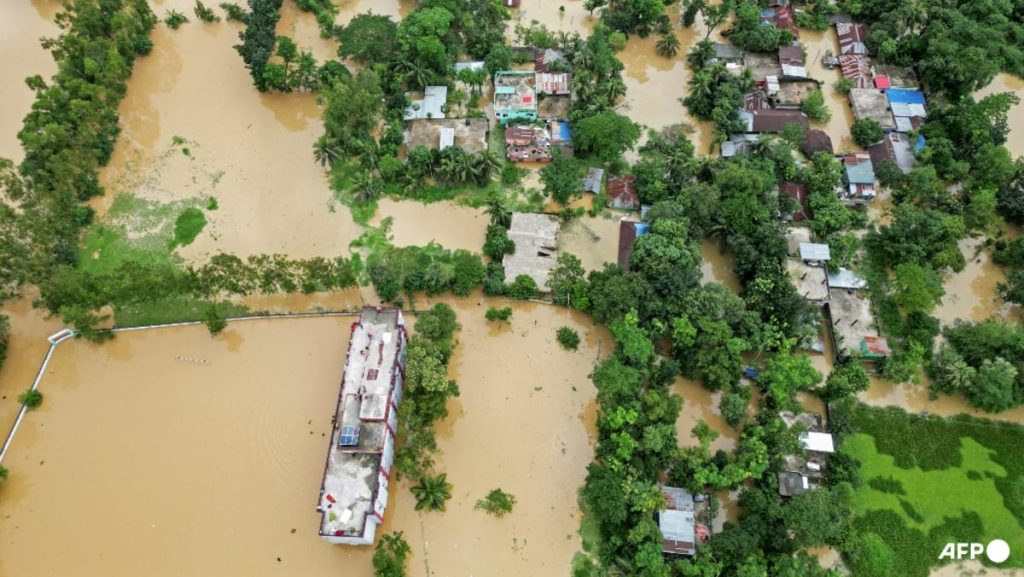Nearly 300,000 Bangladeshis were forced to seek refuge in emergency shelters as heavy monsoon rains triggered massive flooding in the low-lying country. At least 42 people have lost their lives in Bangladesh and neighboring India due to the floods and landslides. One resident in Feni described how her house was completely submerged, with water flowing above the roof, leading her brother to rescue her by boat. The nation, with a population of 170 million, is no stranger to floods due to its many rivers, but climate change is exacerbating the situation by causing more extreme weather events.
The situation in Feni, near the border with India’s Tripura state, has been particularly dire, with residents like Lufton Nahar having to abandon their homes to seek safety in relief shelters. The flooding has made highways and rail lines impassable, hampering rescue efforts and disrupting business activities between Dhaka and Chittagong. While monsoon rains are routine in Bangladesh, the increasing frequency and severity of natural disasters, exacerbated by climate change, are stretching the country’s resources thin and leaving many vulnerable populations at risk.
The impact of the floods in Bangladesh is not limited to just loss of life and property damage, but also displacement, disruption of vital infrastructure, and economic repercussions. With hundreds of rivers running through the country, flooding is a recurring issue, but the changing weather patterns are making the situation more dire. As more extreme weather events occur, the need for improved disaster preparedness, infrastructure resilience, and climate adaptation strategies becomes increasingly urgent for countries like Bangladesh, which are particularly vulnerable to the effects of climate change.
The scale of the flooding in Feni and other affected districts underscores the challenges faced by Bangladesh in managing natural disasters. The government and relief agencies are working to provide assistance to the hundreds of thousands of people impacted by the floods, but resources are stretched thin. With more people seeking shelter and access to basic necessities like food and clean water, the need for international support and aid is crucial to ensure the well-being of those affected by the floods in Bangladesh.
The situation in Bangladesh serves as a stark reminder of the impact of climate change on vulnerable populations around the world. As extreme weather events become more common, countries like Bangladesh are facing increasing challenges in managing disasters and protecting their citizens. The floods in Feni and other districts are a wake-up call for the global community to take decisive action to combat climate change, reduce greenhouse gas emissions, and support countries like Bangladesh in building resilience to future disasters.
In the face of the devastating floods and loss of life in Bangladesh, there is an urgent need for concerted action to address the immediate humanitarian needs of those affected, as well as long-term solutions to build resilience to future disasters. By investing in disaster preparedness, climate adaptation, and sustainable development, Bangladesh and other vulnerable countries can better cope with the challenges posed by climate change and protect their populations from the increasing risks of extreme weather events like the floods that have ravaged the region.


